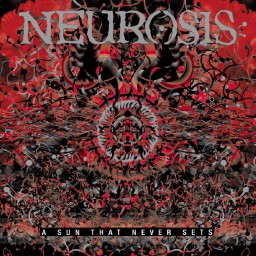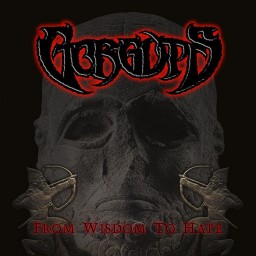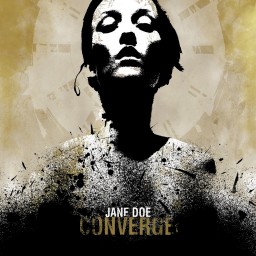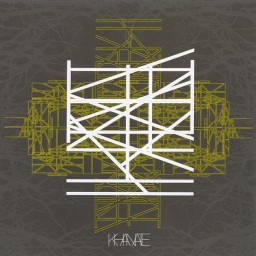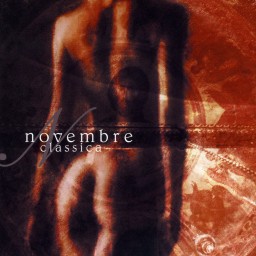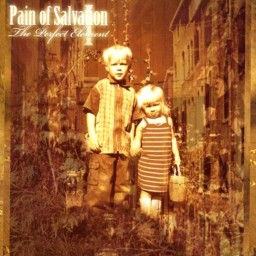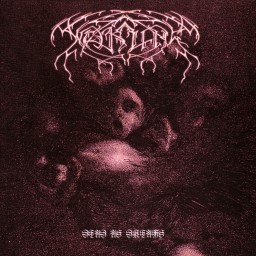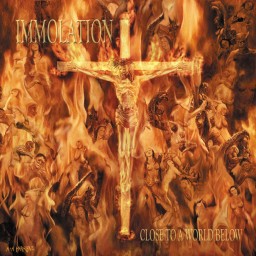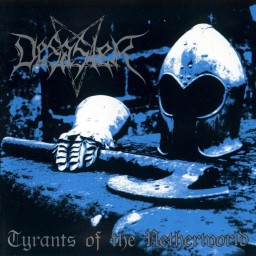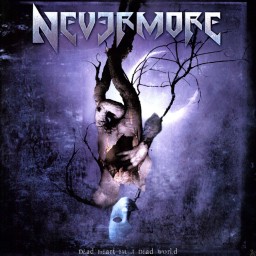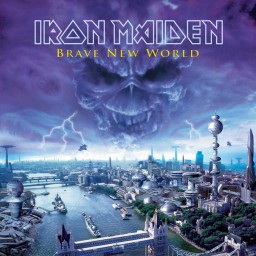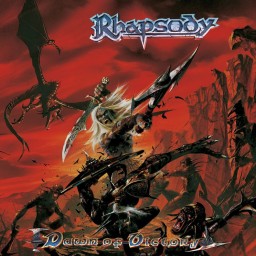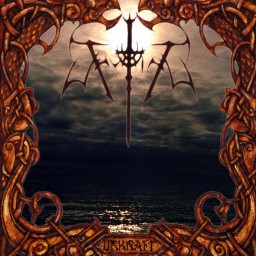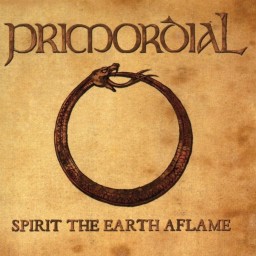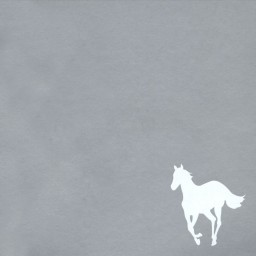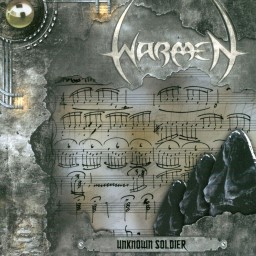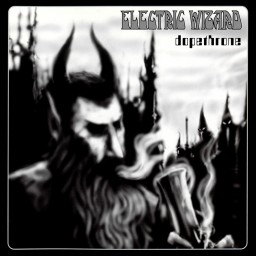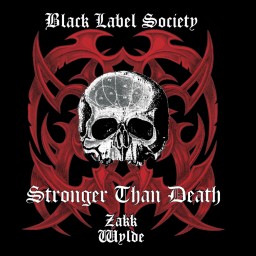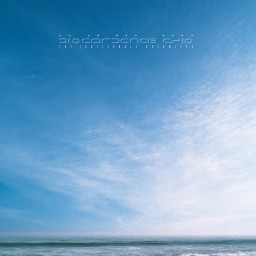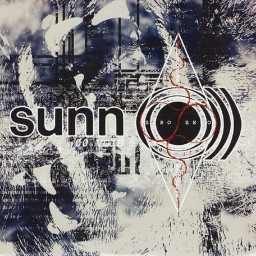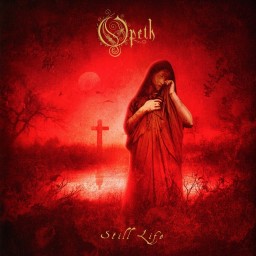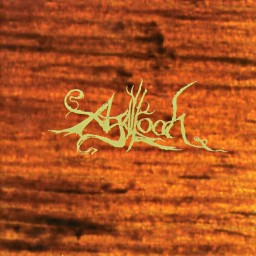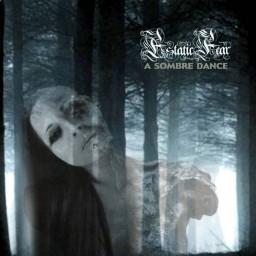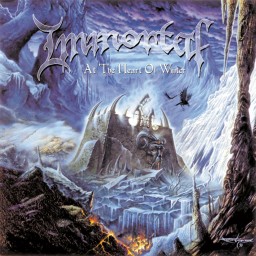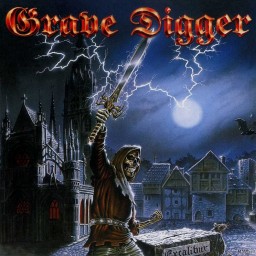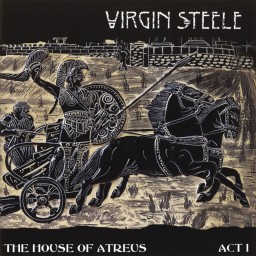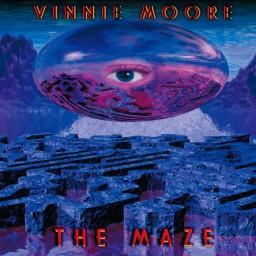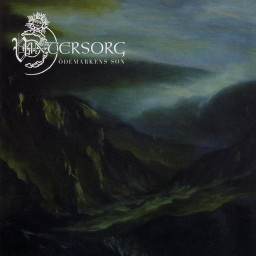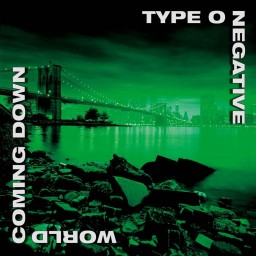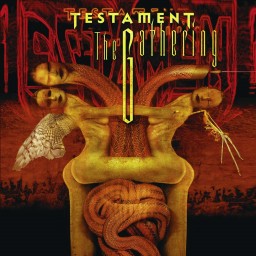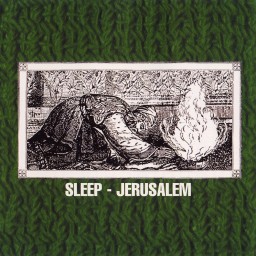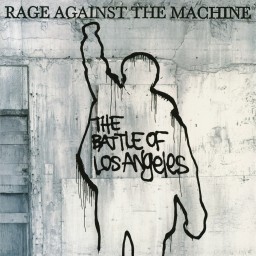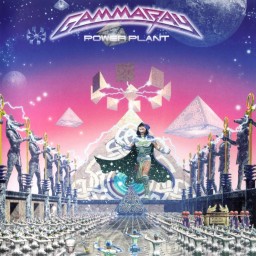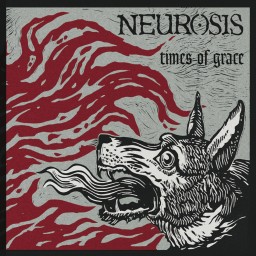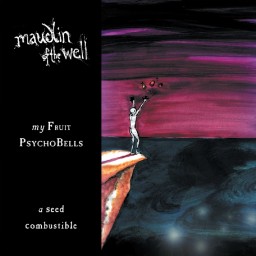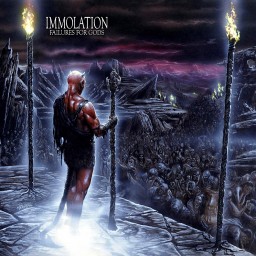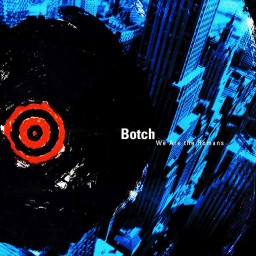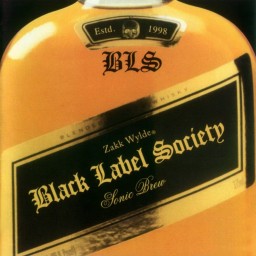SilentScream213's Reviews
A Sun That Never Sets is a relatively subdued album by Neurosis standards. Not only is it quite slow and doomy, but it also has many sections of very restrained instrumentation where the guitars become quiet. Post-Rock and Neofolk are woven between the grander Atmosludge sections, fostering a more minimal sound. Of course the miserable industrial atmosphere remains, but it is one of the “calmer” Neurosis albums, if you can say that.
Most Neurosis albums have a bit of a theme running through them, and this one has constant ties to nature and the sun (this being the second Neurosis album named after center of the solar system). Although they are rather cryptic, there’s a constant feeling of epic grandeur set to the beautiful planet burning to the ground. Mythological apocalypse style.
On this album yet again, Neurosis fall into the same problem I’ve had with all their albums (Except Souls at Zero which was a masterpiece). They craft some really incredible moments, such as the bagpipe-backed crescendos in “From The Hill,” but the issue is they take forever getting there. The band will mull around with some boring, lethargic riff that doesn’t do anything for minutes before they get to anything good. And some of the songs don’t even have a nice payoff. The album ends up feeling very bloated.
At this point in their career, the band are pros at layering dense atmosphere of industrial sludgy madness, and in that area they never fail. The song are rich and mixed well, with many atmospheric effects only revealing themselves after many listens. This adds a great relisten-ability factor, and helps detract from the, at times, boring simplicity of the main instrumentation.
Still though, most of these songs could have been cut in half, or simply need way better riffs or melodies to succeed. A solid release, but its own meandering holds it back.
Genres: Sludge Metal Post-Metal
Format: Album
Year: 2001
Yeah, they open up the album with blast beat skronking. I already know how this is gonna go…
Or so I thought. Now don’t get me wrong, this still isn’t my preferred flavor of Dissodeath, but there’s a big difference between this and the previous Obscura, that difference being that this sounds like actual music.
While there’s no shortage of annoying skreeonk angular guitar riffs, there are also some “normal” sounding Tech Death riffs thrown in that are quite good. The songs have slightly more natural progression, sounding like composed works rather than 10 second segments of random chaos cut and spliced together. The drumming is more controlled, doing more to serve the music rather than be as wild and chaotic as possible. And lastly, the vocals are a bit deeper, stronger, and better enunciated, a massive boon after the high-pitched bellowing of Obscura pushed my tolerance to its limit.
I was very pleasantly surprised to find Gorguts take a few steps back and head towards a more normal direction on this album. While this still isn’t that good to me, the massive improvement from Obscura could definitely lead to something great down the road if they continue honing this style rather than chasing the next weirdest thing.
Genres: Death Metal
Format: Album
Year: 2001
Unforgivable vocals ruin this. Look, I love extreme vocals. I love death growls, I like Black Metal shrieks, I love Thrash yells, all that good jaunt. And even classically “bad” vocals don’t bother me much. I’ve got a pretty high tolerance for that stuff as someone who listens to more than a handful of Metal bands where one of the musicians basically bit the bullet and did the vocals despite not being able to sing at all. I mean hell, I even enjoy J-Pop/Denpa/Idol music where the singers can’t actually sing at all and rely on autotune and their cute aesthetic to get by. Really, it usually doesn’t bother me.
The abrasiveness of these vocals goes beyond offensively bad, into essentially unlistenable, to the point the music around it suffers immensely. There’s some sort of distortion/static effect on most of them which makes them even worse. The crazy thing? The vocalist employs more than one technique, and they suck at ALL of them. The shrill screams are terrible, the punky yelling is terrible, the sassy vocals are terrible, the “singing” if you can call it that is poor, the only thing passable the vocalist does is the monotonous droning style used on “Phoenix in Flight.” Which still isn’t good, but it’s inoffensive.
I originally wanted to read the lyrics along while listening to see what it was about. Gave up halfway into the first song as the vocalist does not even make the most basic attempt to enunciate a single word. Right from the first line, you are immediately lost, as the noises the vocalist screams don’t sound like even one word in the verse. I will never know whether they are good or not because the vocalist put zero effort into delivering them.
Oh, the music? Maybe I’d have more to say about it if I wasn’t distracted by how awful the vocals are the whole time. It’s competently played and written, even above average for the genres employed most of the time. There are some genuinely great moments scattered about, usually when the band leans more into crafting riffs and chord progressions as opposed to being as mathy and chaotic as possible. “Heaven in Her Arms” has some awesome riffs and chords that walk the fine line between melodic and dissonant, aforementioned “Phoenix in Flight” has nice doomy atmosphere, and the Post-Metal style buildup of the closer is pretty great. The drumming is consistently excellent, and probably the one aspect of it I have nothing but praise for. Not only technically impressive and complex, but also packed with variety, and simpler sections that serve the music rather than being too preoccupied with chaos and showing off.
I’m not going to lie though – even with the perfect vocalist, this album would only be “good” to me. Most of it is too chaotic and angular for my taste. A shame though, I think I would have enjoyed the lyrics and concept. At the end of the day it’s just not for me.
Genres: Metalcore
Format: Album
Year: 2001
A miserable, wretched experience – and that’s exactly what they were going for here. A fully realized Drone Metal album, Khanate use the genre to create some truly hideous soundscapes, wrought with dissonance, noise, fuzz and lethargy. The plodding drums create just enough of a foundation to contain the chaos, with guitars and whatever else being used liberally and dissonantly to create harsh noise. The vocals are another aspect adding to the hostility, being a horrid, raspy yell that delivers ridiculously creepy and abstract lyricism and about saws, skin and bones.
For the right person, I think this could be exactly what they’re looking for. I can understand the appeal, as someone who greatly enjoys the deepest despair brought by the sound of genres like Doom Metal. I will say the album is unique for its time as well; despite Drone Metal being around for some time by the turn of the century, very few bands were actually exploring or developing its sound, especially not as entire identities, which Khanate opt to do.
Unfortunately though, the sound here is entirely unenjoyable for me. It’s too dissonant and noisy, and the worst part is that there’s absolutely no counterplay or depth at all. Every minute is the same as the last, with one song being entirely indiscernible from another. The vocals, while having a certain “scary” intrigue at first, quickly become tiring. The lyrics are similarly boring due to being too abstract and repetitive, almost painting a horrifying picture but instead falling short and looking more like ai generated ramblings. I am thankful it has drums (Drone Metal without drums… really isn’t Metal to me!) but those drums do absolutely nothing. Which would be fine if the atmosphere was better, but it’s way too noise and texture oriented rather than mood oriented, which I strongly dislike.
Not for me.
Genres: Drone Metal
Format: Album
Year: 2001
Each album by Novembre has offered something different in a way I adore. The debut album was classic, no holds barred Progressive Death Doom, and one of the first albums ever in the true melancholic Death Doom style more divorced from the more Death Metal tinged style of the early 90’s. The sophomore release was a much calmer and more Gothic Doom album that focused more on clean vocal delivery and slightly catchier music. Classica is in some ways a combination of the two; a melodic, energetic assault of extreme Progressive Gothic Death Doom with influences of Meloblack and Melodeath for that extra bit of power. And it manags to surpass both albums magnificently.
While Classica has unmistakable touches of that fantastic 90’s Gothic Death Doom style (Katatonia, Anathema), it’s also got one boot firmly in the new millennia. Listening to this album, I’m given nostalgia for the 90’s mixed with what was, at the time, a pioneering transition into a style befitting the new era – which of course now, just means even more nostalgia for me of the 2000’s variant. The lyrics are the most striking aspect that puts me firmly in 2000; cold scenery of artificial light, shadowy hallways and snowy streetlights visible through windows paints a picture of how culture was changing at the time. Whereas the 90’s was focused on being xtreme and fantastic, the 2000’s kind of reigned things in and focused on modern reality, especially suburbia. These lyrics dance a fine line between Gothic Doom poeticism and much more plain realism, and they work wonderfully.
The music of course also works in these transitions. We’ve got the classic stuff; fantastic Gothic Doomy guitar leads, aggressive, progressive Death Doom drumming, great songwriting that works in changing tempos and styles. But it’s also got a touch of newer stuff; some Darkwave sections, real spacey, almost Post-Metal atmospheres, gentle, Dream Poppy vocals, all stuff that were still rare in Metal at the time, but would become more commonplace in the coming era.
The album is incredibly consistent. There’s never a dull moment, no track less than fantastic, and even the instrumental track and outro are very convincing and strong. It’s packed chock-full of melancholy, doom and gloom. It’s also rife with energy and aggression, changes and variation. It’s as crushing and emotional as it is driving and entertaining. Novembre married the best of many worlds together on this album, which I consider nothing short of a masterpiece.
Genres: Doom Metal Gothic Metal Progressive Metal
Format: Album
Year: 2000
Used is an enigmatic album opener that commences with what can only be described as almost spoken-word rapped Nu Metal. Right from there, I was a bit turned off. Not that I dislike Nu Metal, but it was the last thing I was expecting on a Pain of Salvation album, and it wasn’t particularly good Nu Metal either. The song changes style multiple times, and each time it shifts back to Nu Metal, I’m like “what the heck.” It just sounds… ugly.
I listened to the album passively a few times, and while the rest was quite good and lush Progressive Metal (with not even an iota of Nu Metal beyond the first track), it still wasn’t really grabbing me. It was settling as another one of those “good, but not great” sort of albums that so often pass us by.
Then I listened to it during my bike ride to work (frigid cold November), which is a great opportunity to really focus on the music. The first track comes on again, and I’m really hearing the lyrics this time… holy moly, is this about child sexual abuse? That’s… really dark. The second track comes on… again, I’m hearing it. This is when I register this album is not only far darker and more serious than I had thought, but it was also most likely a concept album. I continued following the lyrics, and it is hard to follow without knowing the layout beforehand, but yes, this was certainly a tale of abused children growing into damaged humans…
Everything came together for me on that bike ride. It’s hard to explain, but every single song became this incredibly moving piece, full of deftly written lyricism, passionate delivery, and of course, beautifully layered instrumentation. I think the reason it works just so is because the music is very intertwined with the story, the music changing at the drop of a hat to fit the exact mood driven by the narrative. On unfocused listens, perhaps the songs sound a bit fragmented, perhaps the vocals are a bit difficult to follow because of the occasional odd-timed delivery… or maybe it was just a total miss on my part. Anyway, a focused listen fixed that.
I still think the Nu Metal in the first song sounds ugly. It still sounds out of place. And now, I love it for that. To display the vile horror of child abuse through the angry and damaged child, the music should be ugly, it should be disturbing, it should be fragmented. And the fact this album has so much beauty in it – the persevering innocence and longing of the inner child – it makes the ugly parts stand out even more, balancing the whole package. It’s a masterpiece, an engaging and evocative story from start to finish, and a treasure trove of magnificent musicianship.
BONUS
I really haven’t been able to find a good narrative online for the concept story, so I’ve taken it upon myself to lay it out as best as I can for anyone wanting a clearer perception of the events. Based on a combination of what I have read in various places and my own interpretation of the lyrics (at the end of the day, this is not Word of God, but my opinion).
The story follows He and She, two children (and later adults) who were horrifically abused. The concept deals with their trauma bonding and disturbed development due to their past.
Used: Details how His experience of child sexual and physical abuse has lead to a life of youth violence and drug use to escape His pain.
In the Flesh: Details how Her experience of incestuous child sexual abuse lead to Her running from home, engaging in prostitution, and dissociating to escape Her pain.
Ashes: He and She trauma bond over their experiences and develop a bittersweet relationship in which they finally feel a kinship, but are held back by unresolved trauma and toxicity as they feed off one another’s pain.
Morning on Earth: His need for violence and misanthropy is not ignited around Her, and he feels himself seeing the world for the first time by experiencing her love. The song explores how deep down, they are still just wounded children, longing to love and be loved, but the horrors of the world keep them shut out.
Idioglossia: Him engaging in violence to escape his pain – though it’s unclear if this is current or a flashback. The song explores Him finally realizing that he was damaged and hurt as a child, and trying to figure out what is wrong with him.
Her Voices: He begins to see Her face in all of those He commits violence against, essentially gaining empathy through His love for Her. She develops mental illness due to Her unresolved trauma. This could be literal voices a la schizophrenia, or something closer to paranoid personality disorder, borderline personality disorder, or any mental illness warping her view of reality, and She begins to distrust Him. The cycle of abuse continues through Him as He ends up being abusive (whether physically or verbally/mentally, is unclear) and becoming a contributing factor to “Her Voices.”
Dedication: He experiences the death of his grandfather, the first real loss in His life. The grandfather is never mentioned before or after this song, but it’s apparent here that he was an admirable and safe figure in His life growing up – perhaps the only positive one in His whole life.
King of Loss: Probably the most difficult to decipher song. Could very easily be interpreted as the alienation and victimization of He and She at the hands of those in charge of the world. However, I prefer to take this as Him actually finding a successful career as some soulless politician or other figure of power – making money, acquiring possessions, yet nothing being enough, nothing filling the hole of loss and pain within him.
Reconciliation: He finally “wakes up” and realizes what He’s become. An abuser and user of others, just like those who hurt Him. In this moment of clarity, He tells Her to run from Him and find help.
Song for the Innocent: The inner longing of an innocent child for peace and happiness traded for an adult life of violence, abuse, drugs, corruption…
Falling: The moment of “peace” before He commits suicide. It’s an often-documented phenomenon that when a person is near suicide, they will appear carefree and lighter than normal, likely because they know all burdens will no longer matter soon; this is likely why the song is a short and soft, calming instrumental.
The Perfect Element: Him commits suicide in order to free Her from Him. As he bleeds out on the floor, His life essentially flashes before His eyes. We are given references to previously seen moments, as well as memories never explored here (“Once he would run through the summer days, catching memories for ages to come” – perhaps there were yet times when he was truly just a happy, innocent child?).
Genres: Progressive Metal
Format: Album
Year: 2000
Probably the most desolate and bleak Black Metal album recorded by the turn of the century. DSBM hadn’t fully come into its own as a genre yet, and so what we had here was a proto example of the genre. Atmospheric Black as well as straight Black Metal rule the barren fields that this album makes home while heavy doses of DSBM and Doom Metal bring the pain and suffering. A generous amount of Prog Metal and some sparce glimpses of Post-Metal and Drone bring together the full scene of dark devastation.
Just 5 tracks, each well over 10 minutes, is an almost unheard-of decision in Black Metal. But by God, what a treat they are. Repetition is heavy in this album, but so is the progression of sections, tempos, and atmospheres into different chapters of each song. I’m not usually a fan of repetition, but here it is done well, giving each song memorable motifs that keep the listener grounded amidst the chaotic assault of crushing density.
The persevering despair of the record keeps it in the darkest depths of the aural spectrum despite the almost grandiose, epic sound that the band achieves. While usually focusing on the standard fare of Metal instrumentation, there are near-symphonic parts and ambient soundscapes that elevate the music into much greater heights. The power and density of these extra elements both add weight to the compositions while also highlighting the lead melodies. They are also infrequent enough that when they do occur, they immediately grab your attention.
Across all 76 minutes of this album, there wasn’t a moment I didn’t revel in. Even the Drone outro to the final track was just so perfectly placed, I never had any desire to shut it off before it ended. Fully a masterpiece.
Genres: Black Metal
Format: Album
Year: 2000
Dissonant Death Metal is usually not one of my favorite styles… in fact, it’s one of my least favorite styles of Metal. The focus tends to sacrifice riffs, songwriting and memorability in favor of sounding as insane and extreme as they can, pushing boundaries and dancing the line between music and chaotic nonsense. The famous line from Jurassic Park “(they) were so preoccupied with whether or not they could, they didn't stop to think if they should" is applicable to many bands in the genre. Which, if you like that, fine… but not me. So why is Immolation an exception? Well, the answer is pretty simple; whereas other bands try focus on being weird, novel and avant-garde, Immolation simply try to sound as evil as fucking possible.
The RIFFS on this thing are just mind-blowingly good. Yes, they’re quite dissonant and technical, but more than anything, they are memorable and twisted. They carry MOOD, they craft ATMOSPHERE. Immolation keep one boot planted firmly in OSDM, and even lyrically, it’s all anti-religious infernal hellfire and suffering (as opposed to some of the abstract and cryptic topics other bands in the style are known for). This ensures that, despite the insane technical prowess and borderline chaotic songwriting at times, these are super evil, memorable, riff-driven SONGS, not bizarre experiments into what a musician can achieve if they forgo all musical conventions. Not just the guitars, but the rhythm sections and the vocals are all preforming magnificently, providing interesting and impressive soundscapes that push the bounds of Death Metal while still retaining a sense of pattern and conventional appeal.
And yes in fact, the weakest moments of this album are when they lean a bit more into that Dissodeath style. “Lost Passion” is an example of a song that has a bit too much skronking and weird rhythmic djenty-ness at times, though it’s still a great song simply because the band is that powerful. “Father, You’re Not a Father” on the other hand, stands much more firmly in OSDM, with more controlled songwriting and performance (for this band) and the most memorable riff on the album. It’s also surprisingly sombre, with lyrics that allude to a bit more than simple God-hating. Very dark and powerful song in addition to its insane musical majesty.
Despite enjoying every single one of the band’s previous albums, I am still amazed and blown away at how much I enjoyed this one. Immolation have earned more than just my respect; they’ve earned my awe.
Genres: Death Metal
Format: Album
Year: 2000
Considering I wasn’t overly impressed with Desaster’s preceding Hellfire Dominion (don’t get me wrong, it’s very good, but no masterpiece) I was blown away by Tyrants of the Netherworld. They turn the Black Metal influence down just a tad, and the Thrash way up.
As someone very partial to Thrash-hybrids that lean more towards Thrash, this was perfect for. We get some Blackened chords, evil atmosphere and of course the vocals, but the meat of this record is honest to Satan classic Thrash Metal. Both the riffs and drumming see a marked improvement from the previous releases. The guitar work is not only more precise and impressive, but way catchier, with some of the best riffs in the genre since Thrash died in the 90’s. Never ceasing to be evil, however, as the band walks a fine line between melodic and twisted chaotic leads. The drumming has more variety and a lot more energy without relying on generic blast beats for heavier sections. Even some of the solos here really impressed me, those actually leaning a bit more towards Black Metal as they worked in tandem with the song to create some dark and piercing evocations of the infernal chaos. The vocals don’t need much mention, but they are very good and satisfying blackened yells.
I will name one song that surprised me most – “Battle Oath.” It’s not my favorite song on the album, but definitely the most unique; it starts out as a more mid-tempo Blackened Heavy Metal song, but develops into a more Thrash-influenced Viking Metal territory, rife with atmosphere and fantastic, moody riffs. Didn’t expect that from the band!
Definitely a great start to the 2000’s for Thrash, and a foreshadowing of the rebirth of the genre after the shadow of the 90’s slowly dissipated.
Genres: Thrash Metal
Format: Album
Year: 2000
Blast from the Past is a compilation of re-recordings and remasterings the band put together, taking from all of their previous releases. I’m only going to review the re-recordings, as a remaster really doesn’t warrant its own release.
First off, almost every song here is Power Metal majesty, and none are less than great. Gamma Ray have some really great choruses that have been amplified by the slight changes in the re-imagined tracks. The improvements in production do nothing but favors, and there are slightly denser elements to many of the tracks, like sprinklings of extra keys. There was only one track I didn’t feel benefited here, that being “Last Before the Storm” – probably my favorite Gamma Ray song, and the original was simply so good that the slight changes they made felt… I guess, just different rather than better. The original is just too good (it’s still my favorite song here though).
On its own, it’s a collection of fantastic Power Metal. On principal though, I will say most of these songs didn’t really need re-recordings, especially since the band had only been releasing music for 10 years and had not changed AT ALL in their general sound and delivery. To its credit, yeah, I’ll reach for these songs instead of the originals; the better production if nothing else dictates that. But… far from necessary.
Genres: Power Metal
Format: Album
Year: 2000
I’m not the biggest fan of Groove Metal, so Nevermore trading most of their Thrash energy for more rhythmic and mid-temo riffing was a move that shouldn’t sit right with me. Well, I still don’t think it’s as good as the previous albums, but this is monumental for a Groove album. The band’s ability to combine hybrid riffs that combine Groove, Thrash, and classic Heavy/US Power Metal with a more modern atmosphere and dark mood make them super unique, and this album definitely has that identity in spades far stronger than anything preceding it.
Most people probably point to Narcosynthesis, the enigmatic opening track, as the highlight of the album (or the band’s whole career, even), but it was the second track, We Disintegrate, that really gripped me. Of course we get the fantastic core musicianship Nevermore always delivers, but there’s also an AMAZING chorus?? I had never heard Warrel use his voice like that, and it got totally stuck in my head. That was kind of a recurring theme here; I think Warrel learned how to better craft hooks, and use his voice melodically on this album. I’ve always liked him as a vocalist, but catchy choruses were absolutely not his main draw. Here, he hones that tool and utilizes it well, another favorite of mine being the monolithic pre-chorus “And I still Believe in Nothing…”
The guitar solos are another highlight, and along with the melodic guitar leads, add a fantastic touch of spice to the more basic musical foundation. Rhythmic chugs aren’t nearly as bad if you’ve got a stunning guitar lead shimmering over them. My only criticism there is sometimes they’re pushed way too low in the mix – I want to hear the melodies, not the 0-0-0-1-2-0! Gimme the good stuff!
As I’ve hinted at, the slower, more rhythmic musicianship and songwriting style here isn’t as much to my taste as their Thrashier material, but the band is so skilled that they pull it off better than most bands who revolve their entire career around Groove. Nevermore is simply too talented to play off of the weaker tropes of Groove Metal, and therefore deliver one of the best albums in the genre.
Genres: Heavy Metal Progressive Metal
Format: Album
Year: 2000
Like so many Metal bands that faced immense success in the 80’s, Iron Maiden fell victim to turmoil, stumbling and inconsistency in the 90’s. Lineup changes mixed with stylistic experimentation and lack of direction lead to one of the most legendary and beloved Metal bands falling to their knees, failing to keep up with trends while also failing to appease their own fanbase. It’s a story shared by many of the best bands from their era.
At the turn of the century, something changed in Metal. It seemed like older bands realized they don’t need to pretend anymore; they don’t need to chase trends or change styles to appease new crowds. They just need to be themselves and do what they do best. And Maiden were one of the very first bands to realize this, wasting no time in getting Bruce back, returning to their classic 80’s style, and dropping one of the very finest Heavy Metal albums in the first year of the new century.
Brave New World is an exceedingly epic affair with 3 tracks well over the 8-minute mark. And yet, it never overstays its welcome, never feels overlong. How do they manage this? Quite plainly, every minute of every song here is full of carefully crated instrumentation, with wonderful guitar lines weaving between rich and interesting rhythm lines, the only breaks in dense instrumentation being when Bruce’s voice is given center stage to belt out fantastic choruses. Most of the songs here have multiple passages, taking elements from their more Progressive era, but the instrumentation itself is not overly complex or technical; rather, the songs are progressive in that they take you on journeys through different scenes and landscapes, again maintaining a constant interest factor despite the long track lengths.
I have to give some credit to the previous effort, Virtual XI. Of course I have already claimed I find it to be quite an underrated piece on its own, but I think this album puts it into even greater context. Virtual XI was the band’s return to their pure Prog-tinged Heavy Metal after the inconsistency of the other 90’s records. For some reason, Iron Maiden seemed like they forgot how to properly write long songs or something on Virtual XI, but it was very clearly the first step in getting back to who they really were. Brave New World here was them re-finding themselves fully, in all their glory. And of course, a part of that success is the return of Bruce, who is just an absolute powerhouse of a vocalist, both in ability and in his skill of crafting fantastic vocal melodies. A magnificent return to form for the band.
Genres: Heavy Metal
Format: Album
Year: 2000
Much like Rhapsody’s preceding album, Dawn of Victory is an over-the-top epic filled with dense compositions and fantastical tales. Again we are transported to the adventures of Algalord and The Emerald Sword Saga. The concept story itself isn’t anything too special and can be a bit hard to follow at times, but it’s still a fun little treat for those interested and helps the immersion of being transported to these magical lands.
One thing that has to be addressed immediately – this album is cheesier than a stuffed crust everything pizza, and it’s just about as jam-packed with ingredients. Now, I’m a fine enjoyer of cheese when it comes to certain genres (Power Metal can get away with more than most) but this album is definitely pushing my limits. I pretty much had to learn to love it, but certain tracks like The Village of Dwarves fall into silly and even cringe territory. Your mileage may very depending on how much you love or hate cheese.
That ASIDE though… it’s a near-perfect Symphonic Power Metal album. It’s got everything you could want in the genre; soaring vocals, complexly melodic Neoclassical guitar leads, pummeling drums full of energy… it hits all the right notes, and it hits them well. The symphonic elements are perfectly integrated, with many different instruments playing their own parts, sprinkling melodies and themes, or providing a foundation with sustained strings. The medieval nature of this album just gives it more character, and the Symphonic elements walk a fine line between Classical and Folk, acing that medieval-fantasy aesthetic with traditional instrumentation as well as more Cinematic Classical styles.
All in all, due to the nature of this album, it’s kind of a love or hate it type release, but the immense talent in the performers and dense complexity of the compositions ensures pure quality so long as you aren’t lactose intolerant. Despite being so anthemic, it is more of a grower due to the sheer amount of layers in instrumentation to each song, and is definitely more easily appreciated through focused listens with headphones. A magnificent release, though it definitely could have improved with a bit more seriousness and maybe some emotional value. I sometimes find myself feeling like it’s just “too damn happy” while listening, but more often than not, I’m successfully transferred to a magical land of war and fantasy.
Genres: Power Metal Symphonic Metal
Format: Album
Year: 2000
Thyrfing are one of the bands who started consistently leading the Viking Metal movement after Bathory briefly abandoned the sound. Urkraft is a style of the genre that remains quite Blackened and heavy, yet still Folky and mostly uplifting.
The band’s previous album was characterized by having a strong Power Metal influence, making it speedy and melodic. Cheesy, sure, but fantastic stuff. This album loses most of that Power Metal influence for focus on a more midtempo, folky and epic sound. It’s still heavy and cheesy, but in a slightly different way. The compositions are strong and even border on progressive at times, and have some nice layering of instrumental pieces. However, I find myself missing their more energetic stuff.
I think especially with the genre picking up more traction around this time, “Urkraft,” as solid as it is, fails to really stand out from other albums in the genre. Where their previous album had a unique blend of Power Metal melody and energy in the mix, this one is far closer to straight Viking Metal. Still very well played and composed, but less memorable and less unique.
Genres: Folk Metal Viking Metal
Format: Album
Year: 2000
Primordial’s debut Imrama was actually a favorite of mine in the genre of Black Metal. It’s got fantastic Doomy atmosphere and lyricism, some gentler Folky parts, and lots of energy and great riffs. I was confused seeing that the ratings for it seem to be quite underrated, but having heard their following two albums, now I get it. And no, it’s not because they’re better.
Primordial started playing a slightly different style after their debut, with more intricate and eclectic songwriting, but far less aggression and doominess, which were the things I loved about the debut. Each release, in total opposition to the general public opinion, has been less and less appealing to me.
Now, don’t get me wrong. Spirit the Earth Aflame is a very good album. It’s got a nice variety of vocal styles and poetic lyricism. The songwriting is strong, with a lush variety of instrumentation, and sections ranging from slow, to mid-tempo, to even some classic Black Metal blast beating. I totally get why most people prefer this, as it seems this style very much became the band’s identity.
For me though, I hear some great music, but I’m really missing that anger, that melancholy they had before. Sure the identity is stronger, it certainly sounds more unique among the ever-growing mass of Black Metal releases, but hey, what can I say. I’m a sucker for the raw emotion on their older stuff. Spirit the Earth Aflame is a slightly more “artsy” record and I appreciate it for what it is, but more than anything it made me realize why their debut is so special and why no one else seems to like it as much.
Genres: Folk Metal
Format: Album
Year: 2000
White Pony is revered as one of the greatest Alternative Metal albums of all time, and as a big fan of certain strains of the genre, I gave this album a very fair chance. The potential for masterpiece is there, but overall I was left wondering what makes this so great in the eyes of the world.
By rights, the highs are magnificent. It’s got a couple great songs that kept me coming back again and again. But I soon found that most of the album just consisted of anticipation for those few tracks, while the majority didn’t do anything special for me. Why was this?
For me personally, it’s because White Pony just doesn’t go far enough in any of the things it sets out to do. It’s an eclectic album with a good balance of influences, primarily Alt Rock and Alt Metal, but also spreading across Nu Metal, Shoegaze, Post-Hardcore, Dream Pop, and even some artier moments of Downtempo and Glitch. Problem is, it doesn’t exactly excel at any of those things. The heavier, Nu Metal tracks are not heavy enough nor aggressive enough, the darker songs aren’t dark enough, the clean songs aren’t catchy enough, the emotional songs aren’t passionate or evocative enough… you get the idea. If I wanted heavy Nu Metal, I’d rather throw on Slipknot. If I wanted cleaner, more passionate Alt metal, give me modern Katatonia or In flames. If I wanted atmospheric stuff… give me actual Shoegaze or Post-Metal.
The highlights of this album are found in those couple great tracks where everything comes together perfectly. As shameful as it is, I’m unfortunately talking about the same tracks that everybody else likes, the lead singles “Digital Bath” and “Change (In the House of Flies).”
Wow, is “Digital Bath” something special. That was the only song that immediately gripped me the first time I heard it. When Chino goes higher and passionate with his vocals and the gazey chords come in, man, it’s perfect. That moment in the middle of the song where you can actually hear something that sounds like electrical water… godly atmosphere. It’s catchy, it’s passionate, it’s moody, it’s atmospheric, and it’s got a hell of an interesting lyrical concept. AND it manages to capture all of that perfectly with the quirky song title.
“Change” was much more of a grower. Didn’t stand out immediately, but got a lot stronger each time I came back to the album, full of great symbolic lyricism and a dark, ominous mood that works really well with the simpler guitarwork. I will also give a shout out to “Knife Prty” which is just shy of a fantastic song thanks to a bit too much meandering and a slightly lamer concept idea, but the energy and mood of the song is great.
All of these aforementioned songs share something in common; they are cleaner, technically simpler, denser and more atmospheric. They focus on mood, and more evocative vocals. Deftones can do this sort of style pretty damn well. But when they try to do something else, they don’t succeed, and here’s why; the riffs suck. They are incredibly boring, mostly dissonant, not catchy, not creative, not evocative. Ditto for the rhythm section; it’s simple, boring, not energetic enough. Chino’s harsh vocals aren’t very convincing either. For this reason, the band falls flat when they try to go heavier or more energetic. None of the heavier Nu Metal songs left any impression on me. The only other song I can really remember is “Teenager” and that’s because it’s so damn different, being a full on Glitch/Downtempo track. And they do that one decently well too! They just were really not meant for Nu Metal.
Genres: Alternative Metal
Format: Album
Year: 2000
For guitar hero shred-style Neoclassical Metal, impressive musicianship is a given. For that reason, it doesn’t really matter how good the guitarist is if they are able to play this genre on a technical level, cause they’re all in the top 1%. What matters is songwriting ability, the rest of the band, vocals if any, etc. What sets it apart from other shredders? Why does it deserve my 5 cents?
In Warmen’s case… well, there isn’t anything, at least for this debut album. The album is stuffed with “good enough” Neoclassical Metal with nothing separating it from contemporaries in the genre. Yeah, the musicianship is good, but again, I need a bit more than that. It’s a mostly instrumental affair, with vocals appearing on only two tracks. The vocals are good, but nothing mind blowing in terms of ability, choruses, etc. And the instrumental tracks are, again, fine stuff, quite good, but not offering anything memorable. The only unique track would be Devil’s Mistress, which chooses the very odd avenue of having the guitars take a backseat. I mean, half the time they’re barely even noticeable, being lead by drums and synths really. It also has a great chorus, but the verses are breaks are boring.
Overall, the band doesn’t have much identity at this point. But that could change!
Genres: Neoclassical Metal Power Metal
Format: Album
Year: 2000
Dopethrone is an odd one for me. I’ve never been a fan of Stoner “Doom” (most of which is not really doomy at all, but just slow and heavy Stoner Metal) and I hate the fact that a bunch of the most revered “Doom” albums and bands fall into this category of not really being Doom, but either Stoner + Trad Doom or Stoner + Drone stuck with the misnomer.
The thing that makes Doom what it is isn’t simply being slow or heavy. It’s a focus on mood and atmosphere, ranging between dark and misanthropic to depressive, melancholic, and lonely. Always the goal is to evoke some sort of emotional response on the listener, to manipulate their mood using the darker, more painful human emotions.
Stoner “Doom” rarely does this. It’s not focused on mood and certainly not emotionally evocative. In contrast, it’s some of the least emotional music out there, being groovy, chill and drugged out. To some extent it relies on the already altered state of the listener (via drugs etc), whereas true Doom seeks to actively alter the listener’s emotions with music, lyrics and so on. Most of the lyrics in Stoner “Doom” are silly, surreal, and of course, psychedelic and hedonistic. Despite the sluggishness and lethargy, actual Doom is an ACTIVE genre whereas Stoner is a PASSIVE genre.
Electric Wizard are one of the top bands in that game. Their first two albums are exactly what I detest in the genre, with sophomore effort “Come My Fanatics…” being one of the worst Metal albums I’ve ever heard. But as far as this one goes, let’s just say I was pleasantly surprised. While this certainly won’t be making any top “Doom” list of mine, the band took a sound I tend to dislike and made something quite enjoyable by my standards. While the riffs and drumming are nothing to write home about, they’re certainly a step up from the braindead droning of the previous record. The use of feedback and sustained, repetitive notes reaches an apex here, where the texture of the music is palpable and pleasant. The noise and fuzz adds a warm flavor, a spice used sparingly rather than overwhelming the whole dish as on other records in the style such as “Jerusalem.” Perhaps that’s why this album is considered the best; it takes an extremely inaccessible sound and makes it a bit smoother and conventional to appeal to the general palate.
I will certainly give this album credit in doing that much. Despite being many years into the style, “Dopethrone” remains the crown jewel of the Stoner “Doom” style and managed to make something new and unique without really changing any of the core components or techniques. All that being said, it’s still completely emotionally vacant, devoid of mood or passion, and I don’t want it anywhere near my Doom Metal.
Genres: Doom Metal Stoner Metal
Format: Album
Year: 2000
After a handful of Eps that ranged from decent to horrible, my expectations for Isis’ debut weren’t too high. And in this case, I was right to temper my expectations; Celestial sounds like a band who still don’t know exactly what they’re doing yet.
Most of the “atmosphere” to this album is based on repetition and some industrial or otherwise sound effects thrown in the back. The songs aren’t bad or anything - they’re plenty decent - but it does become rather sad when a Post-Metal band can’t pack anything really moving or interesting in a 9-minute track. The fact of the matter is, the guitars, drums, and general instrumentation aren’t very interesting because they rely on atmosphere. And well, that works perfectly fine when you’re building great atmosphere. But the atmosphere here is lacking, as I said, mostly based around some industrial sound effects and repetition. It doesn’t evoke anything or foster any mood.
“Swarm Reigns (Down)” is my favorite track because it’s actually quite doomy, and has this neat oppressive atmosphere built by some odd effects slowly lowering in pitch to make it sound like thousands of insects are raining down on you. It’s really neat, but even this track probably has 3-4 minutes of meandering that aren’t as successful.
I do see potential here, and the highs are a marked improvement from their early Eps. But, this is not yet any masterpiece. Hopefully the atmospheres improve henceforth.
Genres: Sludge Metal Post-Metal
Format: Album
Year: 2000
An exemplary specimen of fully realized Southern Metal, embodying all the influences of the genre strongly. The eclectic nature of this album is its strongest suit, touching upon many different styles yet always within the singular umbrella of Southern Metal and keeping that sludgy, worn-out cowboy aesthetic integral to the genre.
The guitar playing stands out most, and the majority of the songs are entirely led by layered guitarwork, with rhythm and vocals playing second fiddle. There’s a good variety in guitar playing styles as well, with Southern Rock leads, Groove chugs, Heavy Metal riffs and nice acoustic finger plucking for the more somber cowboy numbers.
The huge problem with this album is the mood and actual melodies. The mood of this album can generally be described as “I’m a tough guy, watch out for me” and the melodies to these songs don’t evoke anything at all, they’re just stock riffs. The whole album gives me the sense that I would not enjoy spending time with people who write or enjoy this kind of music. The vocals have a really annoying southern drawl yarl to them as well, only adding insult to injury with the embarrassingly juvenile lyricism. The rhythm section never does anything interesting either, which is a big negative for me.
The tracks that evade those issues are best. “Rust” actually has some atmosphere to it, being a more somber, mostly acoustic track with some electric guitars adding very good underlying harmonies.
I can see it as a fun album with some tasty guitarwork, but it’s painfully shallow.
Genres: Heavy Metal
Format: Album
Year: 2000
Music is crazy, vocals are horrendous. As far as Grindcore goes, this is just as manic and erratic as everything else, but somehow, manages to capture a little bit of melody in the riffs and chords at times. Now, it’s just as often (actually much more so often) chaotic and dissonant, but the occasional dip into what sounds like conventional music boosts this tremendously. The songs are more memorable than your average Grindcore experience because of the tasteful riffs thrown in. The drumming is endlessly impressive, but it is more boring because it is much more liable to just blast beat all the time, leaving little room for anything else. The only time the drums do anything normal is on “Loveless.”
The thing that could have been really interesting about this album is that it supposedly has a ton of references about Neon Genesis Evangelion, and deals with much more depressive and personal lyrics with a sci-fi twist. Now, here’s a big part of where the vocals come in. There are two vocals styles used here; the more often high pitched screams, and the occasional Deathgrind growls. The highs are very annoying and abrasive, and aren’t even intelligible, which is usually one of the benefits of using a higher pitch scream. The lows sound alright, but are beyond unintelligible, garbled nonsense. So, what then, is the purpose? Even when reading along with the lyrics, not a single word is decipherable. The vocals add nothing to the music (for this listener) and instead shriek as much as possible to take away from any nice music going on underneath. It’s such a waste. This would honestly be one of my favorite Grindcore albums if it weren’t completely scalped by the awful vocals.
Genres: Grindcore
Format: Album
Year: 2000
Here’s one compliment I will give… the droning low frequencies and fuzzy feedback here could actually be pretty good white noise. That is, if you want something to fall asleep to, or even just to fill empty space if you’re the type who hates silence, or maybe to distract an overthinking mind. Yeah, I can see a practical appeal to it.
But for someone like me who requires a focused listen to provide some form of value, this has got nothing for me. The drones do absolutely nothing interesting, they don’t evoke any sort of emotion or mood, and they don’t work on building any specific atmosphere, relying entirely on feedback texture. Songwriting is nonexistent, as there’s practically no progression or structure at all to these songs. And I’m still hesitant to call this “Metal”… it’s just Drone music made using electric guitars. I don’t think an electric guitar makes something Metal.
Has some practical use as noise, but as “music,” it fails to do anything for me.
Genres: Drone Metal
Format: Album
Year: 2000
Any band would be honored to release an album that could be considered the best ever in its genre. Opeth have not one, not two, but three albums that always sit neck and neck near the top of any Progressive Metal ranking, and the band fails at having an obvious magnum opus because any fan might name a different release. Such is the band’s prowess.
Still Life is the earliest of the aforementioned triad, being their last 90’s album and still rife with Death Metal. Personally, it ranks as my favorite of the three (and yet not my favorite Opeth album!). This is due to the fact that it is probably Opeth’s most passionate release, being a twisted tale of love, longing, hatred and revenge. The concept album follows the story of a monstrous man who was cast out of society (likely due to religious reasons) and despises the civilization, save for an old flame whom he returns for… the rest I’ll leave for you to discover.
It’s a perfectly delivered tale and Opeth succeed at swapping between styles and moods to fit the theme of the story. It has dark and brooding Death Metal representing the main character’s intense misanthropy due to his mistreatment. It has more melodic, longing guitar leads representing his loneliness and love that still burns. And it has slower, softer folk-inspired sections for the sparse moments of calm the characters are able to find. Of course, these are all trademark styles of the band, and by this album they had mastered each.
It's one of those albums that simply doesn’t have any flaws. It’s got a little bit of everything that makes Opeth a great band, and it’s got just about everything one could want in Progressive Death Metal.
Genres: Progressive Metal
Format: Album
Year: 1999
Agalloch are a name carved into Metal legends at this point in time, iconic for their delves into Folky Post-Metal and ability to craft immense atmosphere. Their debut album “Pale Folklore” shows the band had not quite settled at their modern sound yet, but does that make the album any less strong?
The answer, at least for me, is a resounding no. There’s nothing in the way of Post-Metal here; in fact it’s Folk Metal in name only, stylistically being a hybrid of Blackened Gothic Doom more than anything else. Despite progressive and layered songwriting, most of the actual musicianship is quite simple.
Thankfully, the guitar leads crafted here are some of the most memorable in all of Black Metal, and that’s thanks to the strong Gothic Doom influence. Melancholic, melodic and simple, each song has at least one lead progression that is unforgettable. The rhythm section supports them with pillars of gloomy, repetitive chords and martial percussion, as well as some hidden but impressive basswork as well.
“Hallways of Enchanted Ebony” is the best display of their talent here, first posing the main motif as an acoustic melody over driven rhythm guitars, only for it to come back later in full glory as an electric lead. It even shows up again in the bass! One of the best guitar leads in Metal, I think. The lyrics throughout the album are beautifully somber as well, perfectly matching the atmosphere, and the vocals are a uniquely enunciated blackened call.
Beautiful, harrowing, poetic, and full of exquisite melodies. Should not be missed.
Genres: Black Metal Folk Metal
Format: Album
Year: 1999
Estatic Fear released just two masterpiece albums in their short career, both of them lush with folky acoustic passages, flutes and strings mixed in with crushing Doom/Death Doom. A Sombre Dance features one long suite split up into much shorter tracks (as opposed to the first album, which featured two primary tracks totaling over 50 minutes). The shorter tracks make for a much more digestible album, and the Dark Folk passages are intelligently mixed into the songs rather than being cut into quick interlude tracks.
This album features more clean female vocals, and more Neoclassical Darkwave keywork which gives it a slightly Gothic flavor. The Death Doom is still as strong as ever, driven by liberal double bass drumming and tremolo lead guitars. A great variety in power, heaviness, and speed across even individual tracks makes it an incredible joy to listen to (despite how sombre and melancholic it is). Insecure listeners beware, for what one might call “cheese” permeates every corner, as a fantastical, dramatic showing is the name of the game for this Doom album.
And yet, to me, “cheesy” would be the wrong word. How about “classy”? The strings and melodrama here sound nothing of Power Metal or regular Symphonic Metal taste; rather, it evokes true Classical moods and compositions somewhere between the Medieval era and the Baroque era. Basically, unless you want to call Classical Music cheesy, there’s really nothing cheesy about this! Put on your best palace suit or dress and get ready to attend this funeral in a fairytale garden.
Genres: Doom Metal Symphonic Metal
Format: Album
Year: 1999
Wow! I know I’m in a crazy minority here, but I actually thought “Blizzard Beasts” was going to end up my favorite Immortal album. The way Immortal integrated twisted Death Metal riffs and more varied drumming into their wintry 2nd wave Black Metal formula worked very well for me. I was expecting a return to regular Black Metal with this album.
But no! They learned something very important from the last album! Which is how to write incredible riffs! As far as Black Metal goes, these are some of the best riffs in the genre. Melodic yet raw, aggressive and thrashy but still unmistakably cold. This is still 2nd wave Black Metal at its core, but this time, instead of Death Metal influence, they’ve injected their wintry hellscape with Melodic Black Metal and Thrash influence. Somewhat opposing forces, but it all comes together so well here!
The leads sit in this perfect purgatory between melodic and twisted, they are very memorable and full of impressive lead work a la Meloblack, but they are evil, destructive, and almost out of control a la Thrash! The drumming is in a similar place, where it is much more controlled and willing to run in non-blast beat territory, bordering on progressive at times. However, it never loses sight of being a mad, combative beast of rhythm.
Production is also quite good for this genre. Clear enough, mixed well, sounds good, but not overproduced. Plainly, the album doesn’t have any flaws, and is a masterpiece among the genre.
Genres: Black Metal
Format: Album
Year: 1999
For me, Grave Digger were one of those bands that were always good, but not quite good enough. They were competent, but they were missing that X factor. The first run of the band in the 80’s had very little going for it, “generic” being the best descriptor I can think of. After their reformation in the 90’s, they came back with a lot more power, and hit their stride starting with Tunes of War. From there on out, they delivered some great songs, but the albums as a whole were still short of remarkable.
Enter Excalibur. Grave Digger’s 3rd medieval concept album, this one storying the legend of King Arthur and the Knights of the Round Table. Look, I dunno what happened here. Suddenly, the band is churning out banger after banger, with some of the most powerful, anthemic choruses I’ve heard. Drumming and riffing here is faster and heavier than ever, and even their usually unbearable slow tracks are magnificent here.
One thing that helps for sure is the undeniably dark sound of the album (by Power Metal standards, that is). Lyrically, of course it is full of epic heroism and gallantry just as much as it is death, betrayal, and longing. But the sound of the music accentuates that dark tone – the riffs are decidedly aggressive, and backed by pummeling double bass, you really feel the suspense of knights putting their life on the line. There is a ton of raw Speed Metal influence here.
Another point towards heaviness is the vocal style of Chris (or as he is named on this album, Sir Chris "Parcival" Boltendahl). He opts for a very grumbly warble, gruff and probably more befitting of a Thrash Metal band than Power Metal. I will say it’s an acquired taste, but the reason it works exceptionally well here is all the choruses are multi-layered, incredibly well harmonized near-choral levels of gang vocals. These choruses are ridiculously anthemic and epic, by far some of the catchiest I’ve heard in the genre. As far as I understand, multiple backing vocalists, including the great Hansi Kürsch (Blind Guardian) were brought in to help create these epic choruses. Chris’ usual grunting yell handling verse duties while brilliantly melodic gang vocals emphasize the choruses create a perfect contrast that helps you appreciate each vocal style even more.
The focus on Arthurian Legend makes the album that much more enjoyable. I will confess, I was only passively privy to the tales before listening, but the album got me so interested that I did a deep dive to learn all about the characters. Isn’t it wonderful how much we can learn from music? In any case, Grave Digger pulled all the stops here, and finally released an album that deserves to go down in the Power Metal canon as one of the greats.
Genres: Heavy Metal Power Metal
Format: Album
Year: 1999
By this point, Virgin Steele had acquired a fantastic sound all their own, mixing operatic traditional Heavy Metal with more aggressive USPM and true Power Metal. This was another in a string of concept albums, this time focusing on the Oresteia. I will say, of all the epic Greek myth to focus on, they really chose… one of the least epic. The preceding Illiad would have been much more interesting and action packed, fitting the music style better. The Oresteia is essentially a soap opera.
The good songs here sit among the band’s best. Opener “Kingdom of the Fearless” is a great way to kick off the story, a lengthy epic filled with power and glory. “Child of Desolation” is my personal favorite, showcasing the band’s knack for cheesy, beautiful ballads driven by melody and emotion. The Fire God borders on Thrash Metal, as one of the most aggressive songs they’ve done. But, not all the songs are this good.
The big issue here is how obscenely bloated it is. I mean… the amount of filler/interlude tracks outnumber the regular ones! And many of them approach or even exceed the 2 minute mark as well. It cannot be ignored. Granted, some of these are rather decent, but it’s waaay too much. Virgin Steele kept their previous concept albums a bit more under control, with Invictus definitely dancing on the line with its interludes, but this one is ridiculous.
It's got amazing tracks like their other concept albums, but this one suffers a lot in terms of front to back listenability. Also, the concept is not very fitting for a Power Metal album. They picked one of the few stories in Greek myth with zero action, zero fantasy, zero adventure… I feel this is overrated, great moments though it has.
Genres: Heavy Metal Power Metal
Format: Album
Year: 1999
As far as guitar hero shredders go, Vinnie Moore is probably my favorite. Is he the fastest, most technical, or most flashy? No, none of those things. And even then, this is one of his most subdued albums. For The Maze is not showcasing just Vinnie, the Shredder – it is showcasing Vinnie, the Songwriter.
What sets him apart from most other shredders is his penchant for mood and well-crafted SONGS, not just shred wankery. And this album is perhaps where he delves into evoking scenery and mood with his songs most. There’s something that sounds very… Japanese, about this record in places. The country’s penchant for simple but memorable (and cheesy) melodies focusing on mood always finds its way into anime and game soundtracks, and I feel this could easily be such a soundtrack, especially with its instrumental nature.
Cryptic Dreams is the first slow number, and it masterfully displays long, gentle guitar notes creating very pretty melodies without delving into shred territory really at all. Shimmering picked notes underlay a simple but effective lead that succeeds in evoking a prettier, calmer scenery. Never Been to Barcelona is the token acoustic track and transports you immediately to the scene of some Spanish place, full of culture. It’s my least favorite track, but it’s got great bass work and serves to highlight the eclecticism here.
Rain is the closest moment to what sounds like an old Japanese VN OST – just perfectly encapsulates a rainy night in the city. A quiet city, though – everyone’s gone home, despite the neon lights still reflecting on the wet pavement. But you’re still out, because right now, there isn’t anywhere that feels more “home” than alone in the rain. The last track I’ll highlight is In the Healing Garden. Despite being the big closer, this sounds more akin to after the finale. This isn’t between the hero and the villain – this is a tense will-they-won’t-they between almost lovers, or a suspenseful fissure between friends, comrades. In the end, they each turn away and walk off in opposite directions, but the chance of reconciliation remains hanging in the future.
I’ll never complain about the slower songs here. The issue instead lies with the faster songs; that is, because they aren’t fast or energetic enough. The rhythm section is especially lacking on this album. The drumming is, to say the least, disappointing. It sounds much closer to Rock drumming than Metal. There’s almost no double bass, snare hits are spaced apart with virtually no faster, aggressive beats, and it’s just… kind of boring. This style works fine for the slower songs, but really takes away from faster tracks.
I won’t say it’s my absolute favorite Neoclassical Metal album, hell it’s not even my favorite Vinnie Moore album. But it’s one of the most unique, memorable, and evocative. If you need to feel like you’re in a movie, throw this on and let your imagination run wild.
Genres: Neoclassical Metal Progressive Metal
Format: Album
Year: 1999
A stark improvement over their debut, Vintersorg became stronger in every arena here. The songwriting is slightly progressive, full of variety within the song. Softer passages are interwoven well into the blackened Viking sound. There is a lot more energy here than before, especially in the rhythm section which now sounds fantastic. Non-Rock instrumentation like synths and keys are sparse, but expertly applied when they do appear.
The vocals remain a bit of a sore spot for me. Not bad, but at times they do sound a bit goofy, really leaning into that… folky viking epic sound. The best of vocalists can pull off melodramatic theatrics, but this guy just falls short of that. Still, not nearly enough to detract from the performances.
That aside it doesn’t really have any weaknesses. It’s not the best or most memorable Viking Metal release, but it is absolutely up to the standard and beyond. A rather quick album that stays on topic the whole way through and never fails to deliver.
Genres: Folk Metal
Format: Album
Year: 1999
Really running out of words for this band, and I do not get the acclaim. The guitar tone here is awful, and carries this static, poorly produced sound that makes it grate on my ears. The guitars sound thin, weak and annoying. The riffs are simple without evoking anything; they don’t sound sad or gloomy, they don’t sound evil or dark, they’re just there. Drumming is, similarly, repetitive and boring. For Doom/Gothic Metal, repetitive slow drumming is totally fine if it’s supporting well-crafted atmospheres or emotional performances, but this album is sporting neither of those qualities in spades. The vocals of Peter Steel continue to leave me unimpressed, and his lyrics do far worse. The stupid little skits found between certain songs are atrocious and not funny in the least.
Does the album have strengths? Yeah, I can recognize some. There is more presence of backing atmospherics such as keys, organs, choirs, which help add some density. They aren’t particularly… moody, but they sound nice enough. The variety in said backing elements is pleasant as well, with pretty much each song introducing some new sounds, keeping things fresh. The layering of instruments is done very well, though the terrible sounding guitars render this point null at times. The title track in particular has some great moments, but as it’s over 11 minutes, it’s still not consistently good. The ending of Everything Dies is similarly fantastic, but it’s hardly worth getting through 6 minutes of mediocre Gothic Metal.
I’ll just have to say it again… I don’t want my Gothic Metal filled with jokes, college frat humor and lacking emotion.
Genres: Doom Metal Gothic Metal
Format: Album
Year: 1999
Considering all the classic 80’s Thrash bands that collapsed into chaos and failure during the 90’s, Testament stood their ground much better than most. Many consider the preceding “Demonic” one of the only missteps in their discography (and not a severe one at that), but I still see it as quite a strong album. Not only that, it was a necessary step towards this album – “The Gathering.”
The Gathering takes the experimentation with Death Metal from Demonic and and avoids the monotonous limit in style. Instead, we have a great variety of Thrash, Groove, and Death Metal, each taking center stage on certain songs while falling back on others. Thanks to the consistency in quality from song to song, the willingness to change up in style makes the album sound fresh and filled with vitality. The drumming in particular here is very strong (wasn’t until after writing this I found out it was Dave Lombardo!), and Chuck’s vocal variety is on point.
Unfortunately, it drags a bit in the second half. I much prefer Testament when they’re playing faster and heavier (such as on the opener or the insane “Legions of the Dead”), but they falter to slower grooves too often for my taste. “Careful What You Wish For” and “Allegiance” are examples of the band on low gear and not sounding particularly dark, either (their version of stadium anthems? No thanks). This is alleviated with the closing track, a fantastic burst of energy, darkness, and aggression that closes the album out perfectly.
I’d say this is probably the band’s best since Souls of Black, though I wouldn’t peg it as a mid-career masterpiece like many seem to.
Genres: Thrash Metal
Format: Album
Year: 1999
If you’re gonna build 50 minutes of music around one riff, that riff has gotta be good. It’s gotta be one of the best riffs ever written. There have been many riffs over the years that can qualify as some of the best of all time, and most of them only play for about a minute or so (you know, because the songs they are in have other riffs). So ensure it is something the listener will never grow tired of hearing.
If you’re gonna build 50 minutes of music around one riff, you should probably try to create some sense of change through the rhythm section. Maybe we taste the riff backed by a slower beat first, and then a gallop, and then harmonized with juicy bass grooves. Add some odd time drumming in that doesn’t quite line up with the riff to throw the listener’s brain for a loop and add freshness.
If you’re gonna build 50 minutes of music around one riff, then let the vocals carry harmonized anthems overtop it, delve into harsh vocals to craft a darker section, write some transcendent lyrics that will keep the listener holding on to every line across the lengthy repetition.
For the love of god, don’t do this.
Genres: Doom Metal Stoner Metal
Format: Album
Year: 1999
Just like their previous material, this album loses me in how repetitive and simple it is. Testify opens the album with a perfect example of what you can expect here. A groovy, funky riff kicks off the song well, the ever-impressive bass offering a great backbone. After repeating for a bit, the music all dies down to allow Zack to spit some venom. Then the riff comes back, then it disappears again… The whole time, the drums are essentially playing the same simple beat. By the end of the song, what seemed like a strong riff turns into “wow, that was the only riff on the song and I’m just about tired of it now.”
And then the next track does just about the same thing. Of course, the second track also offers a terrible… kazoo section? There are some surprises on the album, but usually they aren’t… great. The album does have a decent amount of variety between tracks, it’s more so that every track relies on one or two ideas and just repeats them over and over. Sleep Now in the Fire is definitely one of their best songs though.
What IS consistently great, is the basswork. Eternally funky, doing juicier leads than the guitars, the bass has so much power here. Any fans of great lead basswork can appreciate this. Unfortunately it doesn’t save the album from being rather boring, thanks to the other members playing quite simple, repetitive, and unevocative music. Vocal deliverance is strong, but lyrics range from great to poor, and just like the folly of the instrumentation, suffer from being far too repetitive.
Genres: Alternative Metal
Format: Album
Year: 1999
Gamma Ray were in the midst of a string of strong albums in the 90’s giving Helloween some strong competition as the best, most consistent band for the genre. Power Plant adds absolutely nothing new to the formula, but it does deliver tried and true hits we’d come to expect from the band.
As usual, the material ranges from heavy, thundering double-bass-attack Power Metal to more rhythmic arena Heavy Metal. The songs are united by a constant focus on melody, as well as anthemic vocals carrying this sense of uplifting triumph. Truly, Gamma Ray exemplify this “all positivity, all the time” mood that is almost exclusive to Power Metal within the Metal world.
For me of course, I prefer the heavier, more energetic material, and the band is at their best when going all-out. The album opens and closes with its best material, and the cover of “It’s a Sin” is mind-blowingly great, probably one of the best covers I’ve heard. The more mid-paced Heavy Metal tracks can unfortunately get boring; “Heavy Metal Universe” in particular adds cringe to an already repetitive and simple beat.
That being said, the general quality of this record is very high. Another Power Metal banger from the guys in Gamma Ray.
Genres: Power Metal
Format: Album
Year: 1999
This is going to come off as harsh and opinionated, but the fact of the matter is, bagpipes are one of the ugliest instruments out there. They are piercing and shrill, they have almost no vibrato resulting in a stagnant, unrelenting cry, and they’re prone to staggering off key in between notes. It’s very difficult to properly fit them into a song, and are usually only used in contemporary music as a quick way to make something sound “Scottish” or folky.
I think it’s only fitting, then, that Neurosis of all bands would be the ones to utilize this instrument to its full potential. Neurosis are no strangers to making ugly music, as it’s pretty much their MO. Still, I was blown away by the utilization of bagpipes in “The Last You’ll Know.” The instrument provides the lead melody in what could only be called the apex of the song, or album even. The bagpipes play shrill, sustained notes over doomy guitar, and with pristine efficiency, convey this sombre, painful emotion that evokes a person at their limit, threatening to break. The ugly, static, unrelenting, barely-staying-on-note shrieks of the bagpipes are absolutely perfect for evoking this. It works wonders with the sludgy yet fragile atmosphere the band builds here, it doesn’t sound gimmicky or Scottish, it just perfectly encapsulates a harrowing yet still passionate cry of human emotion. It is, quite plainly, one of the greatest moments in music I have heard.
…What about the rest of the album? Right… it’s good. Not all that memorable. The majority of this album is Neurosis plodding along with chords that don’t evoke much and adding some effects and atmospherics that only provide surface level complexity to the album. Most of it is not very successful in building any mood outside of the generic trademark Sludge “miserable.” There are a few moments such as above where the band really captures something special, but most of them are hidden between long stretches of nothing.
Oh yeah, and then there’s the album Grace. Most should know the lore; Grace is a Dark Ambient album made by Neurosis side project Tribes of Neurot as a companion album meant to be listened to simultaneously with this album. On its own, well, it’s just a pretty minimalistic Dark Ambient album with samples, droning, and Noise. Doesn’t make for great individual listening.
But, how do they stack up as a duo? Grace adds some pleasant layering, density, and connectivity to the album. It truly makes it feel like one continuous experience, and it does feel like it’s how the album was meant to be listened to. And good god, remember that aforementioned moment with the bagpipe leads on “The Last You’ll Know”? Ambient pads backing that moment in perfect harmony just elevate it into an even more unbearably bittersweet moment of pure miserable catharsis. Unbelievable…
But does it do enough to elevate the whole album to its commonly held masterpiece status? To me, no. It definitely improves the album, but using numeric terms, probably by about a quarter star, 10 percent, etc. Grace is too minimalistic and lacks any standout moments of its own to do much more than just slightly improve the album. Given the choice, I would always listen to them as a set, it's definitely the superior experience, but it’s not as “transcendental” as some would have you believe. Mostly just a small bonus. I applaud the creativity, but at the same time, could have just released it as one album…
Either way, I’m not rating the duo here, because that’s not what this is. And after having listened to the two together, it does highlight a bit the “empty” parts of this album, where there’s really not much going on. Without a denser, more evocative atmosphere, the weak riffs and simple rhythm section isn’t doing enough to really carry this.
And so, I’ll stand by what I said before. It’s an album with some incredible moments, but they do get a bit lost in a fire of “just good” Atmosludge. Not the magnum opus of the genre it is often hailed as.
Genres: Sludge Metal Post-Metal
Format: Album
Year: 1999
You really don’t know what you’re gonna get going into an album titled like that. And perhaps the last thing you’d expect is a doomy, gloomy descent into the bizarro oceans of the well. My Fruit Psychobells manages to subvert expectations in many ways, and at times this is a positive and others a negative.
Firstly, I have to praise the creativity and atmosphere here. The doomy sections are easily the best, morose chords and broken leads play over discordant layers of other instrumentation, which varies wildly from section to section. Surreal, aquatic lyricism paints pictures of drowning in hopeless oceans while still reaching out for some bright, warm thing. When everything hits right, it’s immaculate.
The problem here is that most of the time, things aren’t always hitting just right. The Death Metal, Post Rock, Jazz, and whatever-else influences all make for an interesting listen, but at times, they are at odds with serving the song or atmosphere. More often than not, a song will spend a few minutes building a sense of mood, only to break into a totally inconsistent style that offsets (and too often ruins) the established mood. Sometimes the changes in style are fun and interesting, but other times they feel pointless, like quirkiness for the sake of quirkiness.
If the band managed to change styles while RETAINING the mood, that would be fantastic. As it is, this album is full of incredible moments surrounded by pieces that sometimes do and sometimes don’t fit together. Still a unique and impressive undertaking, but it can be improved.
Genres: Avant-Garde Metal Progressive Metal
Format: Album
Year: 1999
After the incredible Here in After, I was prepared for Failures for Gods to similarly break my spine and send me to a place of misanthropic misery where no god can touch me. I was ready for twisted riffs to fill me with infernal black flames and ravage my soul while the drums mimicked the beatdown of an unworthy god. That triumphant album cover of the devil gazing upon his subjects was the final piece.
Perhaps I expected too much. For somewhere between the two albums, Immolation seems to have lost something key. By rights, the music is expertly played. The drumming is inhuman, the songwriting is interesting, the vocals slay. On its own, it’s a great album. But this is essentially a strong Tech/Dissodeath influenced Death Metal album… not the follow up to one of the greatest albums in that genre ever.
Trying to put my finger on what’s missing here, it’s the memorability. Despite being highly Dissodeath influenced, Here in After featured some incredibly memorable riffs, often repeating their strongest, catchiest riffs multiple times in order for you to latch onto something amidst the brutal chaos, leaving each song memorable and strong. Failures for Gods… just doesn’t have that. I can’t remember a single riff off the album.
And that’s pretty par for the course when it comes to Dissodeath, but it goes to show why Here in After is a whole other breed. Failures for Gods is a great album that is sure to satisfy fans of the genre. But as a follow up to one of the greatest albums by one of the greatest bands in that style, you could call it a… “Failure.”
Genres: Death Metal
Format: Album
Year: 1999
Botch’s second and final album carries many of the same strengths and weaknesses as their debut.
To start off, the pros:
- The drumming. Lord, the drumming is fantastic. It’s varied, it’s technical, it’s metallic and aggressive, it’s capable of slowing down for sludgy, moody sections. Perfectly tows the line between serving the music and standing out.
- The songs are long and varied, and cover a greater range of speeds than the debut. More prominent are the slower, sludgier sections, which give the music more room to breath.
- The moments they lean towards Atmospheric Sludge Metal are the best. They manage to craft some harrowing atmospheres that actually carry some weight. The best example is the second half of “C. Thomas Howell as the ‘Soul Man’,” which is definitely their best song. The simple chords and double bass drumming at the end are a perfect climax that actually sounds passionate and memorable. Wish the band did more of this.
However, the cons:
- Like the debut, it’s not very memorable. It has no hooks to speak of, neither in the vocals nor music, and that’s thanks to being very inharmonious. The songs are neat when they’re playing, but once they’re done, it’s very difficult to remember anything from them. (Swimming the Channel averts this, hence being easily their best song.)
- The riffs are angular and dissonant. They don’t really… evoke anything, aside from anxiety. It’s not catchy, but it’s also not evil or anything like that. Just kind of uncomfortable, but not in an emotionally gripping way.
- The songs are long and varied, [i]but[/i]… pretty much just swap between slow anxious, fast anxious, mathy anxious… it’s all somehow monotonous despite the variety in playing style. Like, the band can only play one feeling, which is manic discomfort. Which is cool if you like that, but it’d only work for me if the music and vocals/lyrics were more emotional. This isn’t; it’s very abstract both musically and conceptually, so the focus on anxious moods doesn’t evoke anything from me aside from discomfort.
- The lyrics are too abstract to deride much meaning, which is unacceptable when vocals are screamed in this way. There’s thought, but no passion. The final track is basically ten minutes of them saying the same thing over and over.
- The long Drum n’ Bass track closing the album is the worst track. Weak ending.
For these reasons I find the album good, but not great. I can understand the praise, especially among the genre. But I think this is more niche than the ratings lead on: I think you’d have to be pretty into this kind of music specifically for it to click just right.
Genres: Metalcore
Format: Album
Year: 1999
Southern Metal is one of those Metal genres that just doesn’t have much appeal to me. The strong Blues influence ensures the riffs are simple and boring, and ditto for the rhythm section. Vocals are usually yarled, twang-tinged tough guy grunts, and the lyrics are typically about simple pleasures like alcohol, sex, and other drugs (or oddly enough, Christianity). It’s basically Stoner Metal, except replace the weed with alcohol. Alcoholic Metal.
Sonic Brew is not Black Label Society’s most iconic album, but it’s a great overall display of the genre. One of the reasons is that across its hour-long, 14 track runtime, the band explore every nook and cranny of the genre (that had been established by the turn of the century). It has a decent amount of variety for almost always sticking to the core sound of Southern Metal. Most of it is lead by Grungy vocals and Bluesy, Sludgy riffs. But there are acoustic passages, Southern Rock-esque guitar solos, some anthemic choruses in places, and odd moments of experimentation in sound effects.
And after my trip around the Southern Metal tour multiple times, it’s difficult to remember much of anything because the genre is just pretty… boring. And in fact, the most memorable (and my favorite) tracks are the ones that stray furthest from the style. Spoke in Wheel is a standout… as a Contemporary Country ballad.
It’s the kind of music that can be fun and groovy, but offers almost nothing in the way of depth, emotion, etc. Not quite “Bored to Tears,” but certainly nothing I’d ever come back to.
Genres: Heavy Metal
Format: Album
Year: 1999










